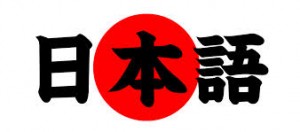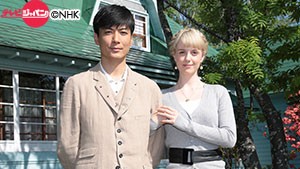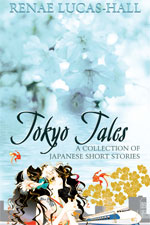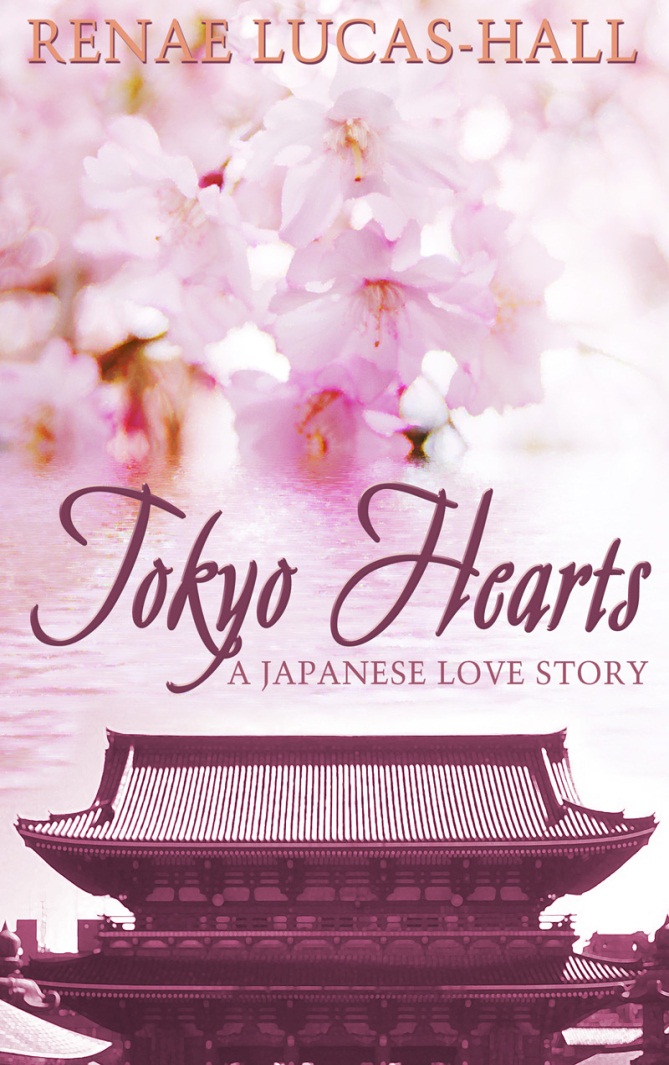Wow!! Watch this fantastic video featuring my books Tokyo Hearts, Tokyo Tales and Tokyo Dreams in Tokyo’s newest magazine called「Dear Shilpa」If you’re in Tokyo you can pick up a free copy of the magazine at Narita Airport. I really appreciate the effort that went in to producing this video – thank you so much!!
How to write a New Year’s Card in Japanese
In Japan, many people still uphold the tradition of sending New Year’s postcards (nengajō 年賀状). Some people send out hundreds of these postcards to family and friends. You don’t write about your life in detail on these cards. The greetings are always kept short and simple.
There are many designs and styles available for Japanese New Year’s postcards but one of the most popular is a picture of the appropriate animal from the Chinese Zodiac. In 2015, the Chinese Zodiac animal is the sheep/ram/goat.
If you’re in Japan, you should take your New Year’s cards to the post office between 15 December and 25 December. They should arrive on the first of January. If you’re sending a regular postcard, you should write 年賀 in red below the stamp so the postman knows it’s a New Year’s card and not to deliver this card before the first of January.
If someone in your family or a close relative has died in the past year then you shouldn’t send New Year’s cards. You should send 喪中はがき (mochu hagaki). This will inform people you’re in mourning. If you receive one of these cards, you should send a Winter Greeting card ( 寒中見舞い) in the middle of January as a response, but not a New Year’s card.
You can write a Japanese New Year’s postcard in four easy steps:
1. New Year’s postcards are written vertically from right to left with a set greeting at the beginning such as:
明けましておめでとうございます.
Happy New Year
Or:
新年おめでとうございます.
Happy New Year
2. After this, you should continue with a few words straight from the heart such as:
昨年は大変お世話になりありがとうございました.
Thank you for all your kind help during the past year.
Or:
皆様のご健康をお祈り申し上げます.
Wishing everyone good health.
3. After your message, you should write the date. Don’t write the date the card is written, on a New Year’s postcard. Instead, write “2015年 元旦”. The Japanese character for “year” is “年” and “元旦” means the morning of the first of January.
Alternatively, you can write Heisei 27 (平成27年 元旦). Heisei (平成) is the current era in Japan. You can work out the Japanese Heisei year by subtracting 1988 from the Western year.
4. Finally, you should write your address and your name vertically in Japanese at the very end. If you’re not Japanese, you should write your name in katakana (a Japanese syllabary used for transcription of foreign language words). You write the receiver’s address and then their name vertically from right to left on the front of the postcard. The small set of five boxes on the front is there for you to write the addressee’s postcode.
As the year is coming to an end, I’d like to wish you all a wonderful Christmas and a safe and happy New Year. Thank you so much for visiting my Cherry Blossom Stories Blog in 2014. I really hope you’ll return and continue to show your support for me, my writing and my books in 2015.
8 Ways to Improve Your Japanese When You Live in Tokyo
1. When you’re looking for somewhere to live in Tokyo it’s always better to share an apartment with a Japanese person rather than seeking out gaijin (foreigner) share houses, if you want to improve your Japanese language skills. Although a Japanese person, who is willing to share their apartment with a foreigner, might be hoping to improve their English, you should still have plenty of opportunities to improve your Japanese language skills if you choose to live with someone who has limited English skills. You can suggest a plan to speak only in Japanese for two weeks and in English for the other two weeks in a month if you decide to live together.
2. Watch television for at least one hour every day. If you’re planning to live in Japan, you have probably already studied Japanese at school or university in your home country or you’ve taken the time to learn Japanese by yourself in preparation for your stay in Tokyo. If you dedicate time to watching television in Japan you’ll slowly pick up more and more vocabulary. I suggest you tune in to melodramatic and romantic dramas – they are easy to follow and the plots in these dramas usually unfold very slowly. You can prepare for your trip in your home country before you leave for Japan by watching some of these Japanese dramas on your PC for free.
A drama that was very popular on NHK Television in Japan is called “Massan”. This particular drama received a lot of attention from the international community in Japan, mainly because the lead actress is an American woman. Her name is Charlotte Kate Fox. Charlotte plays a Scottish woman in “Massan” called Ellie Kameyama, a fictional character based on a real-life Scottish woman called Jessie Roberta “Rita” Cowan who traveled to Japan circa 1920. Ellie’s husband in the series is Masaharu Kameyama played by Tetsuji Tamayama. This drama is a fictionalized account of when the couple met and the husband’s endeavours to build his business – the Nikka Whiskey Distilling company. Although Charlotte Kate Fox did not understand or speak Japanese as a second language when she accepted the role, she began speaking Japanese in the drama by memorizing the sound of each Japanese word. Despite the language barrier, Charlotte has received positive reviews for her portrayal of the character Ellie. Maybe you can tune in to this drama when you’re in Japan. Not only will you be learning Japanese while you watch, you’ll also be able to chat about this very topical and much talked about drama with your Japanese friends or when you meet other foreigners.
3. Many foreigners try and save as much money as they can when they work in Japan so many people end up buying quick and easy meals from convenience stores. This is because they are cheap and these shops often have a huge and tempting selection. The problem with this is that you can become isolated and lonely eating these meals by yourself back at your apartment if you live alone. Instead, you should find your local yakitori (grilled chicken) bar or even yatai (mobile food station). You will not seem out of place sitting there by yourself and you’re not expected to drink alcohol so don’t worry about hangovers when you have to work the next day. Non-alcoholic Mugi cha (barley tea) and Oolong tea are often served at these places and the food is generally very cheap. The atmosphere at yakitori bars and yatai food stations is also nearly always lively and welcoming. If you visit these places once or twice a week, you’ll get to know the people who work there and the regulars and you’ll be having conversations with them in no time.
4. Many foreigners date Japanese people when they live in Japan and this nearly always helps improve their Japanese skills. However, men should be careful they don’t start picking up female speech. There are lots of Japanese words only spoken by women and of course there are also masculine words spoken only by men. Therefore it’s important to differentiate between female or male Japanese and standard, polite and honorific Japanese. You should also be careful not to learn lots of Japanese slang and later try this out on your Japanese managers at work because this may come across as being extremely rude and inappropriate.
5. There are many cultural and art and craft groups all over Tokyo. Find out where you can join a class and learn new and culturally-appropriate skills in your local area like Ikebana (flower arrangement), Tea Ceremony, shodo (Japanese calligraphy), kendo (a Japanese martial art that uses bamboo swords) or musical instruments like the shamisen. More often than not the teacher will only speak Japanese but most teachers will go to a lot of effort to help you learn by using simple Japanese words or they’ll take the time during the lesson to show you how to learn by example. These classes are also great places to meet the locals and talk with interesting Japanese women or men while you learn a new skill together.
6. Make friends with your students if you’re an English teacher in Tokyo and arrange to go out for coffee with them or ask them to show you around Tokyo. Explain to these pupils that you would prefer to speak Japanese outside the classroom.
7. Find out about homestay experiences. You can improve your Japanese and learn a lot about Japanese customs even if you just spend a weekend with a Japanese family. Companies like Homestay in Japan!! will organise all this for you.
8. Travel around Japan and stay in Japanese ryokans (inns) on the weekend or when you take a week off from work. You will notice the different dialects when you travel to different parts of the country and you’ll learn greetings and polite Japanese from your hosts at the ryokans. These hosts will go to a lot of trouble to provide you with everything you need for your stay in simple but polite Japanese and you will not feel that you are misunderstood as the proprietors at these inns are used to having foreign guests at the more popular tourist destinations all over Japan.
A Spooky Short Story for Halloween from my Latest Book TOKYO TALES called ‘The Lucky Bar in Nihonbashi’.
It’s time for a spooky Halloween treat! Sit back, relax and read my short story The Lucky Bar in Nihonbashi from my latest book Tokyo Tales: A Collection of Japanese Short Stories.
Nihonbashi is a business district in Tokyo. The character in this story has had a terrible day and she decides to drop in for a drink at the ‘Lucky Bar’ near Nihonbashi train station on her way home from work but everything is not as it seems . . . I’m sorry but I’m not going to give away the end of the story here. You’ll have to read the entire story from below to find out what happens. Whether you’ve been to Japan or not, I’m hoping you’ll enjoy this supernatural short story.
It was the fourteenth of June and it seemed like the worst day of the year for me. Everything had turned sour for me that day. For starters, it was the beginning of the tsuyu rainy season in Tokyo and I’d left my umbrella on the train that morning in my rush to get to the office. Leaving my workplace at the end of the day without anything to shield me from the rain outside, I knew I looked just as pathetic now as I did when I’d arrived at my desk at eight thirty a.m.
I remembered stumbling into work after running three blocks from Nihonbashi train station to my office not long after eight fifteen in the morning with just a plastic bag covering my head to protect me from the pouring rain. I’d wiped myself down in the crowded elevator while everyone else had shoved to one side so they didn’t have to rub up against my wet clothes. As I exited the lift on the eighth floor, I felt the eyes of everyone in the office upon me as if they were judging me for showing up looking like 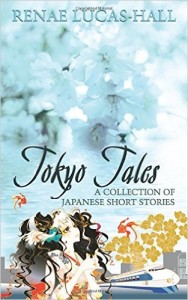 I’d been for a swim in my work clothes. I sat down in front of my PC trying to hide from and ignore the amused expressions and the snickers from the three girls who always sat next to me . . . READ THE REST OF THE STORY.
I’d been for a swim in my work clothes. I sat down in front of my PC trying to hide from and ignore the amused expressions and the snickers from the three girls who always sat next to me . . . READ THE REST OF THE STORY.










